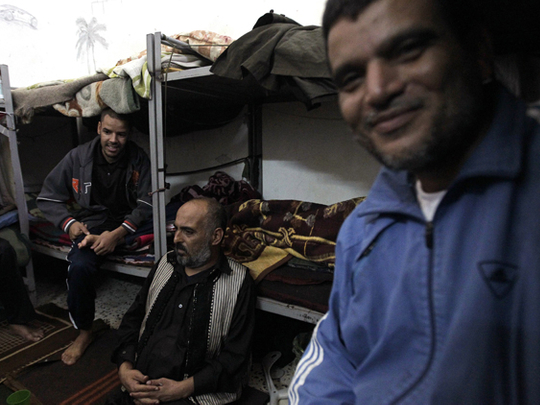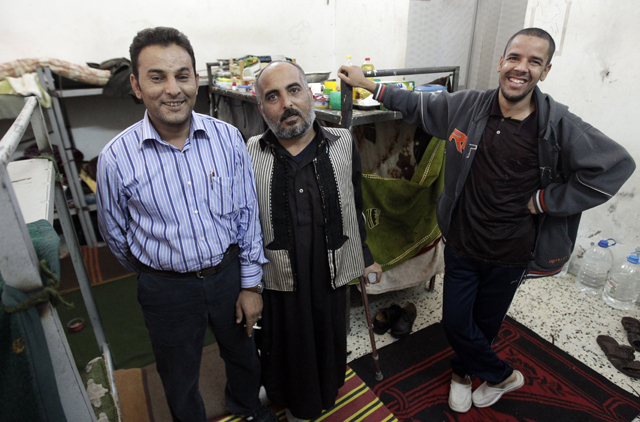
United Nations: Libya's former rebels are holding some 7,000 detainees, many of them sub-Saharan Africans, without access to due legal process after the country's civil war, UN chief Ban Ki-moon said in a new report.
Ban cited reports that some detainees had been tortured, that some people had been targeted because of their skin color, that women were held under male supervision without female guards and that children were being detained alongside adults.
Disturbing
The UN secretary-general also said there were "disturbing reports" that war crimes had been committed by both the rebels and former government forces in Sirte, where toppled leader Muammar Gaddafi was captured and killed on October 20.
Ban's report, obtained by Reuters, was prepared for the UN Security Council ahead of a debate on Libya the 15-nation body will hold on Monday, to be addressed by the UN special envoy for Libya, Ian Martin.
It was sent to the council as the International Criminal Court's prosecutor said on Wednesday he was happy for Libya to try Gaddafi's captured son Saif Al Islam, despite concerns about Libya's institutions after 42 years of dictatorship and the bloody eight-month civil war.
The UN chief's report said most courts in Libya were currently "not fully operational" due to lack of security and absenteeism by judges and administrative staff.
Makeshift detention centres
Ban, Martin and other UN officials have called on Libyans to respect human rights and refrain from revenge. But Ban said that "while political prisoners held by the Gaddafi regime have been released, an estimated 7,000 detainees are currently held in prisons and makeshift detention centers, most of which are under the control of revolutionary brigades."
The prisoners had "no access to due process in the absence of a functioning police and judiciary," he said.
'Much To Be Done'
Sub-Saharan Africans accounted for "a large number" of the detainees, Ban said, while members of Libya's Tawerga community had faced reprisals, including revenge killings, for their role in attacks by Gaddafi forces on the city of Misrata.
In Sirte, Gaddafi's birthplace on the Mediterranean coast where he made his last stand, there were "disturbing reports that killings amounting to war crimes were committed by both sides."
Libya's new authorities have announced an inquiry into Gaddafi's death. While Gaddafi employed some fighters from neighbouring countries as mercenaries, other Africans worked in civilian jobs in the oil-rich North African country.
Torture allegations
Human rights groups have charged that some rebels made no distinction between the two. "Some detainees have reportedly been subjected to torture and ill treatment," Ban said. While the ruling National Transitional Council had made some moves to transfer detainees to state control, "much remains to be done to regularize detention, prevent abuse and bring about the release of those whose detention should not be prolonged," he said.
Libya's acting justice minister had handed the UN mission in Libya a draft law on transitional justice, based on pinning down the truth behind human rights violations, reconciling Libyans, trying war criminals, and compensating victims.
The mission, known as UNSMIL, had offered to provide detailed comments on the draft and recommended that civil society be consulted over it, Ban said.













